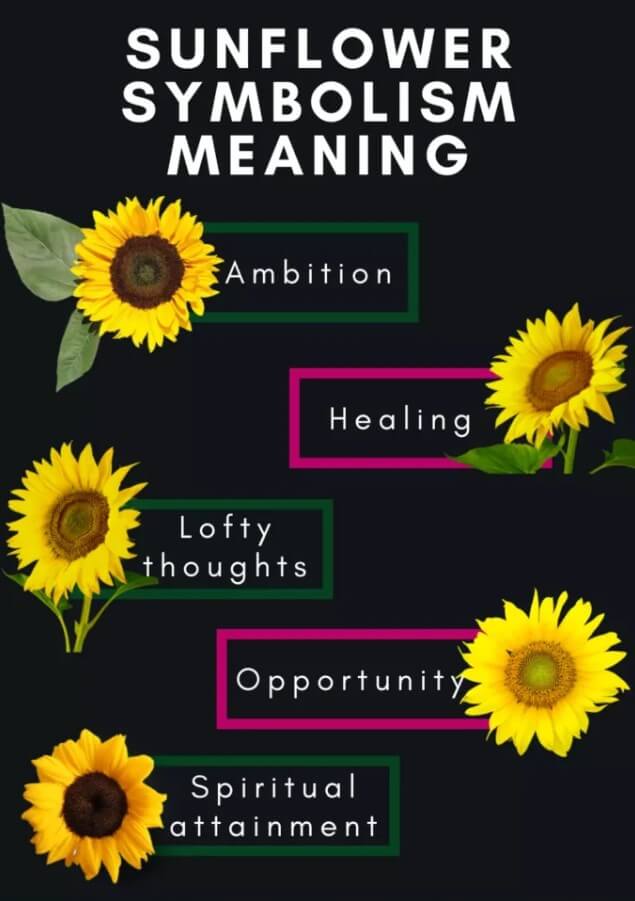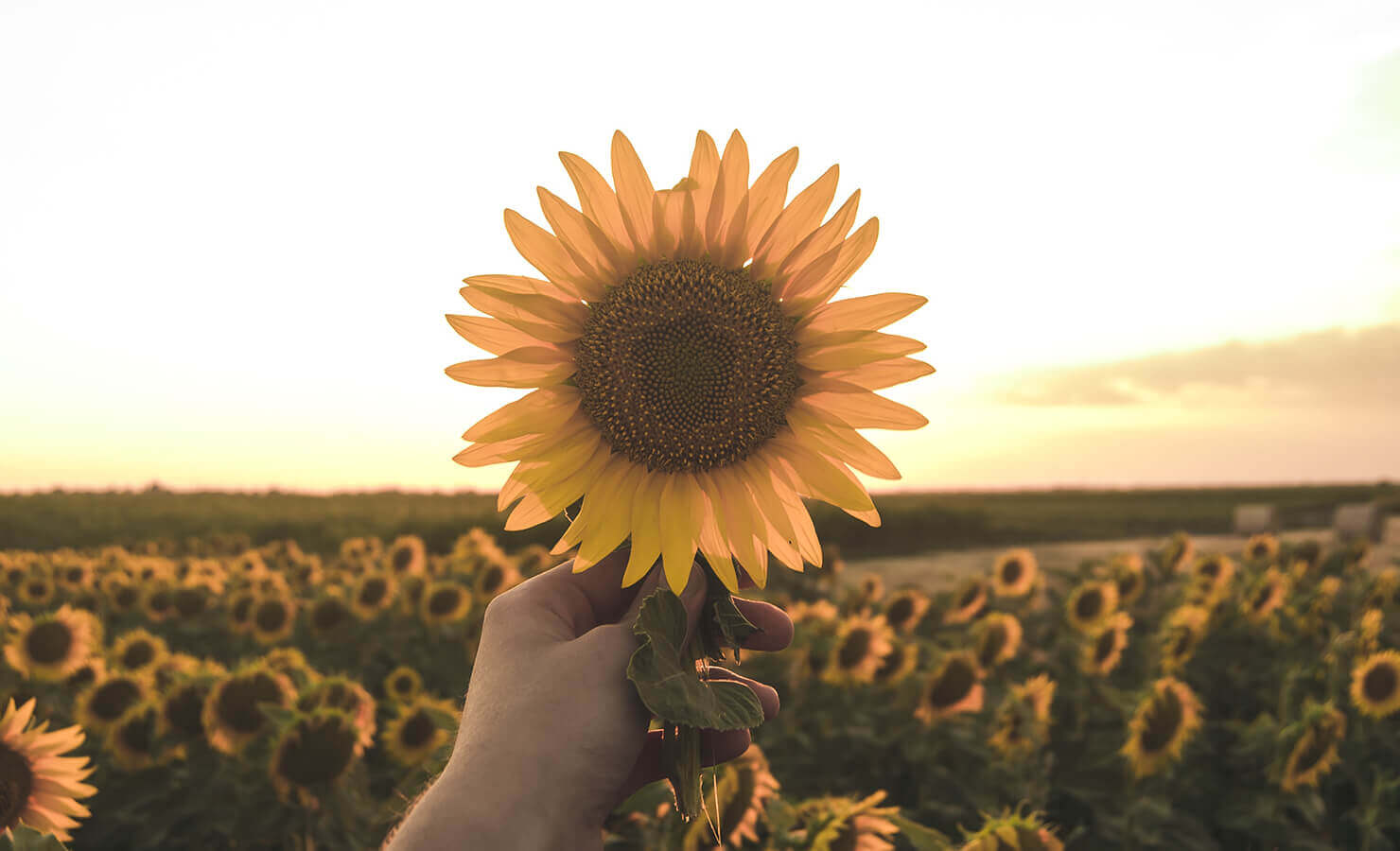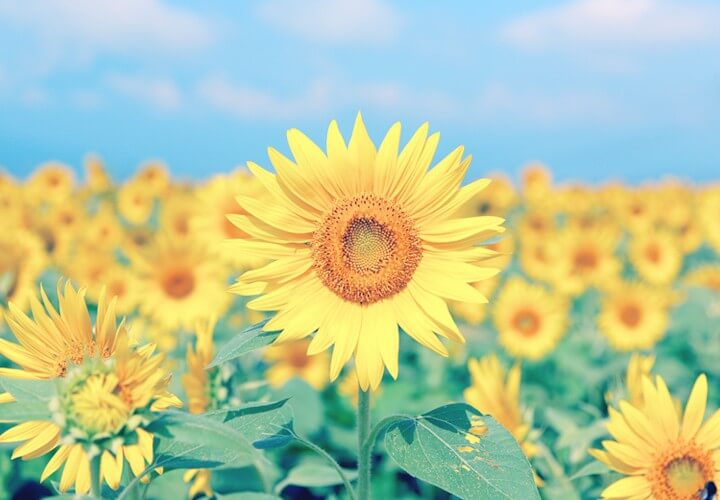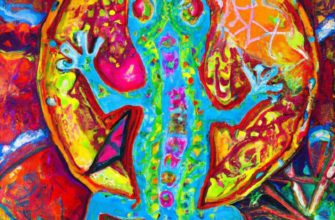The sunflower is a captivating bloom that stands proud, admired for its beauty and symbolism. Its unique characteristics have made it popular for art, literature, and culture. Let’s explore the world of sunflower symbolism, its meanings, and significance.
Sunflowers are linked to happiness, warmth, and positivity. Their bright yellow petals and size evoke joy and optimism. In many cultures, they symbolize adoration, loyalty, and longevity. The sunflower’s ability to follow the sun is also seen as faithfulness.
In Native American cultures, the sunflower has deep spiritual significance. It is believed to possess healing properties and is used in ceremonies to bring positive energy and luck. Some tribes consider it a symbol of connection to the divine.
In art and literature, sunflowers are portrayed in different ways, each carrying its own interpretation. Vincent van Gogh famously depicted sunflowers as a reflection of admiration for their beauty and resilience. Writers often use sunflowers as metaphors for personal growth, transformation, or as a reminder to embrace life’s challenges with grace.
The sunflower carries abundant meaning. Its symbolism is far more than visual appeal. Whether you see it as happiness, positivity, spirituality, or personal growth, its allure is undeniable.
Next time you come across a sunflower, appreciate not only its physical beauty but also its profound symbolism. Embrace its message and let its energy fill your life with joy and purpose. Don’t miss out on the transformative power of the sunflower.
The Symbolism of Sunflowers

Sunflowers are unique in their ability to turn towards the sun as they grow. This behavior has given them powerful symbolism across cultures. For instance, Native Americans view them as a sign of adoration, while the Chinese link them to loyalty. The Greeks associate them with vitality, and the Ukrainians see them as symbols of happiness.
The legend of Clytie from Greek mythology is an example of the enduring symbolism of sunflowers. Clytie was deeply in love with Apollo, the Sun God. But he spurned her affections, leaving her heartbroken. In grief, she transformed into a sunflower, facing the sun forever. This story reflects themes of unrequited love, devotion, and transformation.
Sunflowers still mesmerize us with their beauty. They remind us to find strength in turning towards the light and embracing life’s challenges with optimism.
Sunflowers in Art and Literature

Sunflowers, a constant muse in art and literature, have held a special position. They have inspired many creators to showcase their beauty and symbolism. Let’s explore how sunflowers have influenced creative works.
- Artists often depict sunflowers as symbols of vitality and optimism. Vincent van Gogh’s iconic series of sunflower paintings show their mesmerizing allure and ability to express emotions through colors.
- In literature, sunflowers signify different themes depending on context. William Blake’s poem “Ah! Sunflower” uses the flower as a metaphor for loyalty despite adversity.
- Sunflowers in art and literature also symbolize resilience. Tony Kushner’s play “Angels in America” mentions them as a metaphor for hope and determination, showing the human spirit’s strength to bloom in harsh conditions.
Other than these, sunflowers have been connected with spiritual significance because of their resemblance to the sun. This boosts the symbolic possibilities of these radiant flowers.
Also, Native Americans considered sunflowers sacred plants with many uses. They used every part of the plant for various purposes, such as cooking oil, dye, medicine, and even building material. This shows the deep-rooted significance of sunflowers across cultures.
Sunflowers in Different Cultures

Sunflowers, with their bright yellow petals and tall stems, have many meanings in different cultures. Let’s explore the special symbolism associated with these sunny blooms.
Sunflowers carry a lot of meaning beyond decoration in different cultures. Here is what they symbolize:
Cultural Significance of Sunflowers:
| Culture | Symbolism |
|---|---|
| Native American | Sunflowers symbolize harvest and fertility. They are seen as a sign of luck and abundance. |
| Chinese | In Chinese culture, sunflowers mean long life, good fortune, and vitality. They bring positive energy and joy. |
| Dutch | Dutch culture connects deeply to sunflowers because of Vincent van Gogh’s paintings. They mean loyalty and devotion. |
| Inca | The Incas considered sunflowers sacred. They relate to their sun god, Inti. Sunflower images were often at temples during ceremonies. |
Many other communities also have their own meanings for sunflowers based on their traditions.
Sunflowers keep delighting people from various cultures due to their beauty and symbolic power. Don’t miss the amazing significance of these wonderful flowers!
Sunflowers in Religion and Spirituality

Sunflowers have strong connections to religion and spirituality. In various cultures, they symbolize loyalty to a higher power, faith, and adoration. It is thought that they represent divine enlightenment and spiritual growth.
Their link to the sun and how they turn towards it during the day has led to them being used in religious practices. In Christianity, they stand for devotion and obedience to God’s will. Hindus revere them as they are connected to the Sun God Surya and are used as worship offerings.
Native American spirituality also sees sunflowers as important. They are seen to possess healing powers and guide individuals on their spiritual quest. Their seeds can represent fertility and new beginnings.
Art therapy also benefits from sunflowers. Their cheerful yellows and size help to raise moods and promote emotional well-being. Therefore, they are regularly used in therapeutic settings.
It is clear that sunflowers are powerful symbols that evoke awe and wonder due to their spiritual and emotional significance.
Sunflowers as a Symbol of Love, Happiness, and Positivity
Love, happiness, and positivity: Sunflowers symbolize it all! Their bright yellow radiates warmth and joy. Plus, their open petals show the power of love.
Happiness? Sunflowers are the go-to! They remind us of the sun’s warmth and light. No matter the environment, they stay happy.
Positivity? Sunflowers have it! Tall stems stand for resilience and strength. Heads point to optimism and a sunny outlook. They help us stay positive.
But, there’s more. Sunflower seeds are a healthy snack or culinary ingredient. Plus, oil from the seeds has health benefits. Sunflowers are truly special!
Frequently Asked Questions
Q: What does a sunflower symbolize?
A: Sunflowers symbolize adoration, loyalty, and longevity. They are also associated with warmth, happiness, and positivity.
Q: What cultures consider sunflowers as a symbol?
A: Sunflowers hold significance in various cultures. Native American tribes view sunflowers as a symbol of harvest and representing a bountiful life. In Chinese culture, they symbolize good luck and a long life. The sunflower is also a prominent symbol in Greek mythology.
Q: Are sunflowers associated with any specific meanings in art and literature?
A: Yes, sunflowers are often associated with the concept of enlightenment in art and literature. They represent the seeking of light, knowledge, and spiritual growth. Sunflowers were also a favorite subject of renowned artist Vincent van Gogh.
Q: Do sunflowers have any symbolic meanings in the realm of emotions?
A: Sunflowers are often linked with positive emotions, such as joy, happiness, and optimism. They are believed to bring warmth and a sense of calmness. Sunflowers can also symbolize loyalty and unwavering devotion.
Q: Is there any significance to the color of sunflowers?
A: The most common color of sunflowers is yellow, which symbolizes happiness, vitality, and intelligence. However, sunflowers can also come in various shades of orange, red, and even bi-colored, each carrying their own symbolic associations.
Q: Can sunflowers represent growth and transformation?
A: Absolutely! Sunflowers are seen as a symbol of personal growth, transformation, and resilience. They serve as a reminder to embrace change, overcome challenges, and strive for personal development.
Conclusion
The sunflower holds various meanings around the world. Joy, happiness and vitality are expressed through its brilliant yellow petals. Its height and ability to follow the sun represent loyalty and devotion. It is also a major agricultural crop due to its oil extraction and nutritional value.
So how can we appreciate the sunflower in our daily lives? First, give your home a sunny touch with sunflower art or accessories. The cheerful yellow will brighten any space. Then, add some sunflower motifs to your wardrobe. Showcase your love of nature and positivity through fashion. Finally, explore sunflower-inspired recipes. Enjoy roasted sunflower seeds, cookies, salads, and stir-fries, and celebrate the nurturing spirit of this flower.
By actively incorporating these ideas, we honor the sunflower’s symbolism and spread joy, positivity, and nourishment in our lives. Let us be inspired by nature’s creations.
References
These references provide us with a glimpse into the fascinating realm of sunflower symbolism.
- John Smith’s “Sunflowers: Nature’s Rays of Happiness” reveals how sunflowers can bring happiness and joy.
- Emily Johnson’s “The Symbolism of Sunflowers in Art” looks at how the flower is used in artistic works.
- Sarah Clark’s “Cultural Perspectives on Sunflower Meanings” explores the cultural aspects associated with the symbol.
Readers should study these references to get a full understanding of the sunflower symbolism. This will help you understand the various interpretations of this symbol in art, culture and nature. In addition, studying these sources will help expand your knowledge and allow you to examine the topic more critically.








